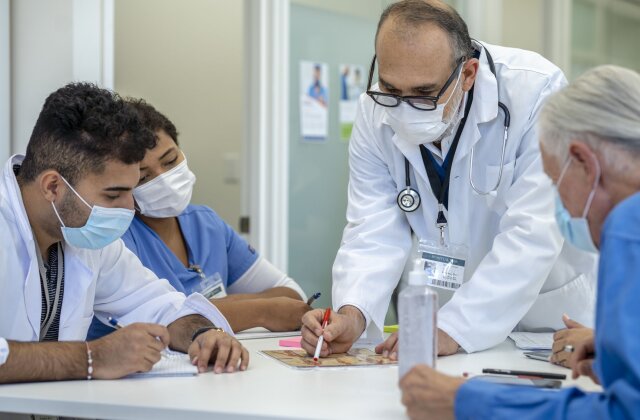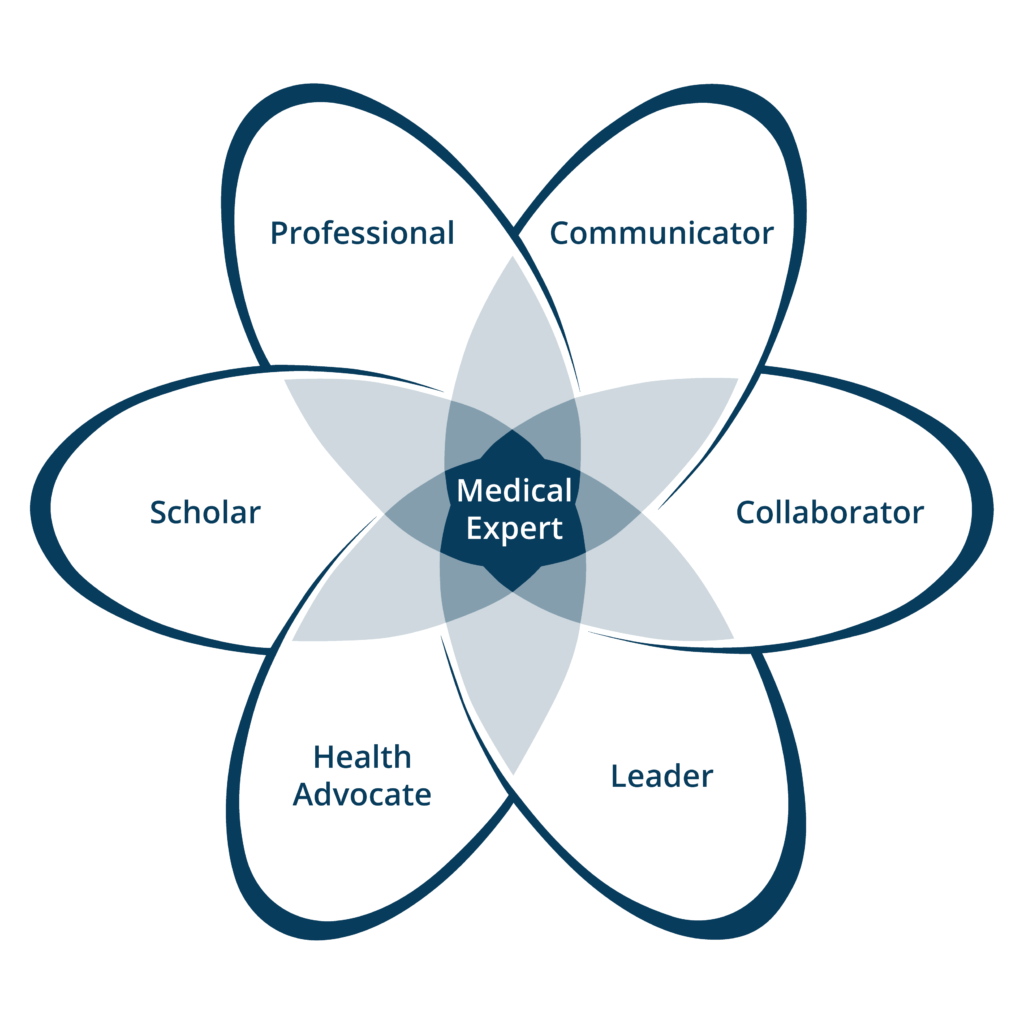Last updated on May 5th, 2025 at 09:32 am
Table of Contents
Applying to medical school is a rigorous process that goes beyond excellent grades and standardized test scores. Canadian admissions committees seek well-rounded candidates who not only possess academic prowess but also embody the qualities essential for a successful career in medicine. One powerful tool to showcase these qualities is the CanMEDS Framework. Developed in Canada, CanMEDS outlines the key competencies that Canadian physicians need to meet the healthcare needs of their communities effectively. Understanding and integrating the CanMEDS roles into your medical school application can significantly enhance your candidacy. This guide explores how to align your experiences with the CanMEDS Framework to present a compelling and comprehensive application.
What is the CanMEDS Framework?
The CanMEDS Framework identifies seven essential roles that physicians must fulfill to provide high-quality patient care and contribute positively to the healthcare system. These roles are:
- Medical Expert (Central Role)
- Communicator
- Collaborator
- Leader
- Health Advocate
- Scholar
- Professional
While the Medical Expert role is at the core, each of the other roles interconnects to form a well-rounded physician. Medical schools increasingly recognize the importance of these competencies and may evaluate applicants based on how well they demonstrate these roles through their experiences and personal attributes.
Click to see hundreds of consultants who can mentor you:
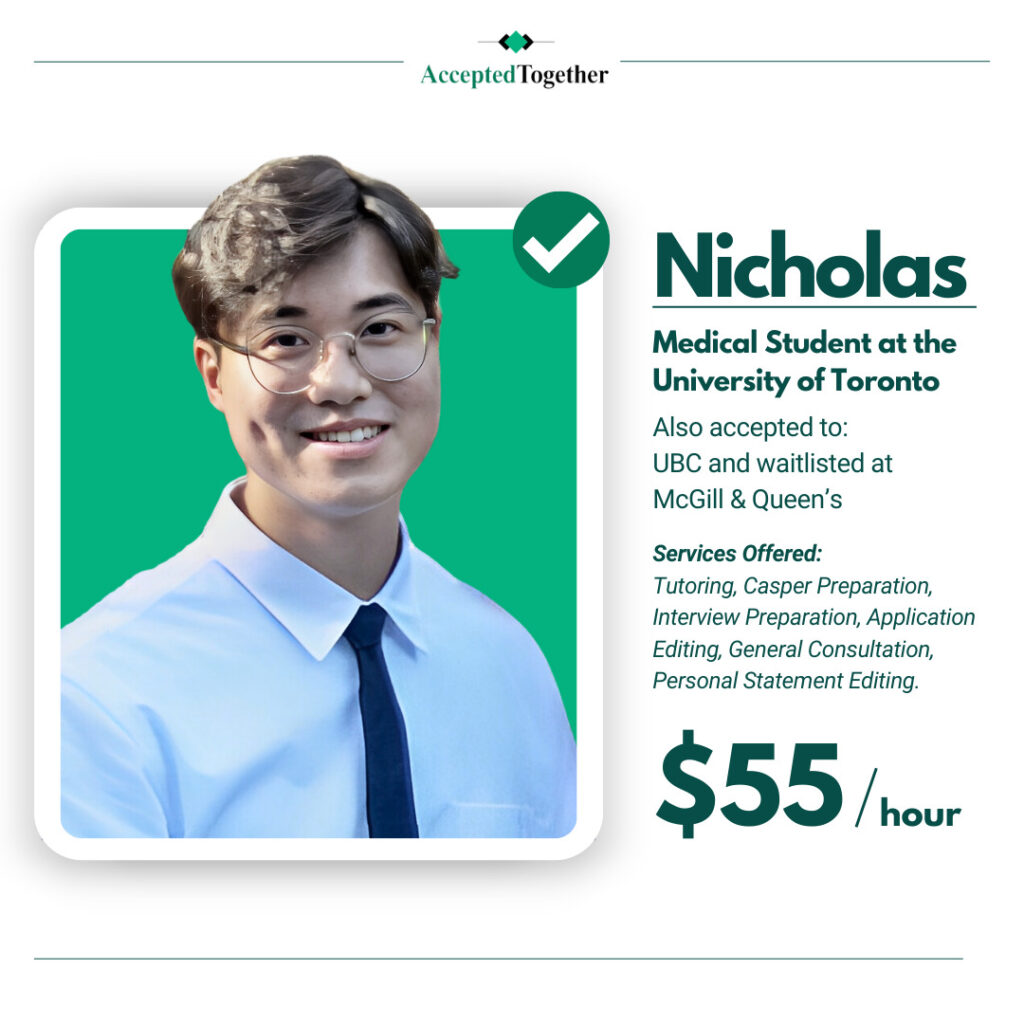
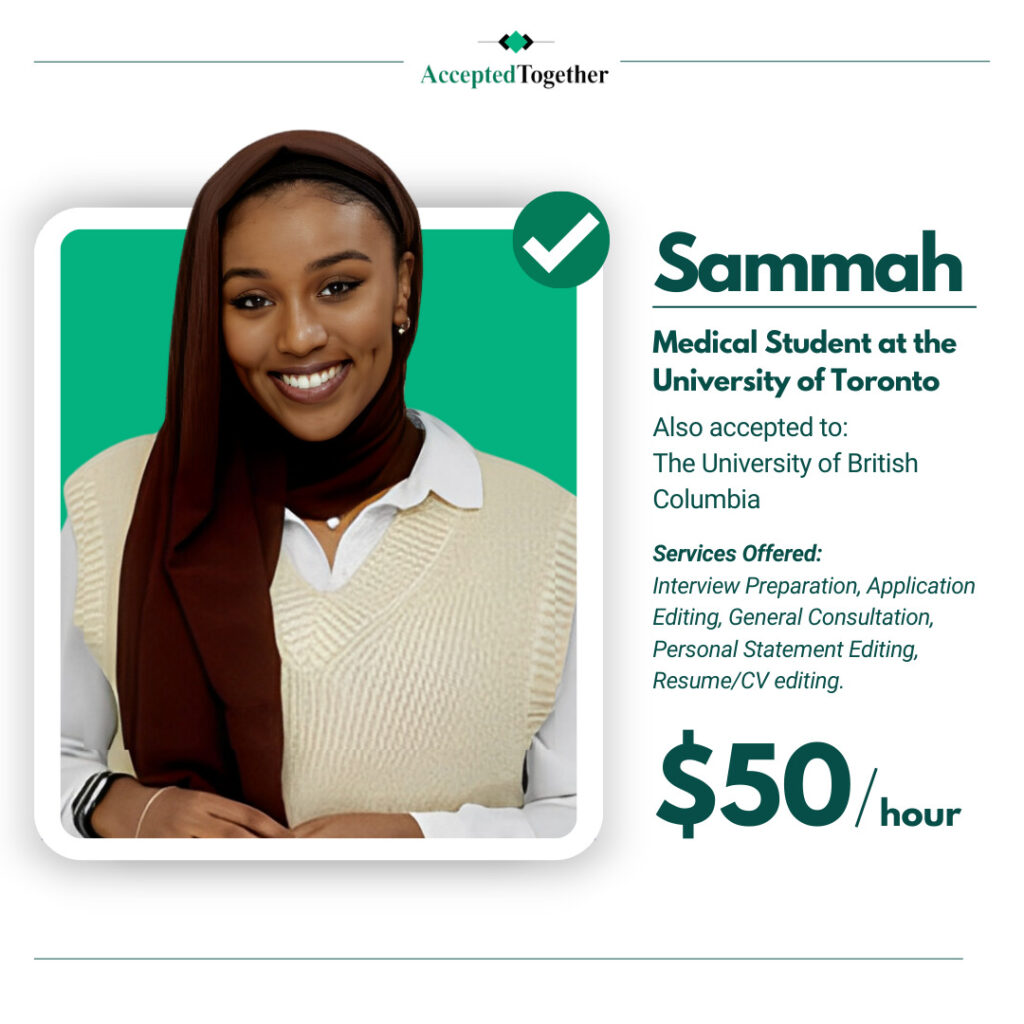
Integrating CanMEDS Roles into Your Application
To effectively utilize the CanMEDS Framework in your application, consider how each role aligns with your experiences, extracurricular activities, volunteer work, research, and personal achievements. Here’s how you can showcase each role:
1. Medical Expert: Demonstrate Your Clinical Knowledge and Skills
What It Entails:
- Proficiency in medical sciences
- Clinical reasoning and decision-making
- Application of evidence-based practices
How to Showcase:
- Academic Excellence: Highlight your coursework, GPA while not being too cocky- perhaps focusing on how you IMPROVED it!
- Clinical Experience: Detail your shadowing experiences, internships, or volunteer work in healthcare settings. Emphasize specific instances where you applied medical knowledge.
- Research Projects: Discuss any research you’ve conducted, particularly if it relates to clinical practices or advancements in medicine.
Example: “In my role as a research assistant in the oncology department, I contributed to a study on novel treatment protocols for breast cancer. This experience deepened my understanding of clinical trial design and the importance of evidence-based medicine.”
2. Communicator: Showcase Your Interpersonal and Communication Skills
What It Entails:
- Effective verbal and non-verbal communication
- Active listening
- Ability to convey complex information clearly
How to Showcase:
- Patient Interaction: Share experiences where you interacted with patients, demonstrating empathy and clarity in communication.
- Leadership Roles: Positions that required you to communicate with teams or lead groups.
- Public Speaking: Any instances of presenting research, participating in debates, or leading workshops.
Example: “During my volunteer work at the local clinic, I facilitated patient intake interviews, ensuring that patients felt heard and understood. This role honed my ability to communicate complex medical information in an accessible manner.”
3. Collaborator: Highlight Your Teamwork and Collaborative Abilities
What It Entails:
- Working effectively within multidisciplinary teams
- Respecting diverse perspectives
- Contributing to collective goals
How to Showcase:
- Team Projects: Describe collaborative projects in academic or extracurricular settings.
- Healthcare Teams: Experiences working alongside healthcare professionals, such as nurses, therapists, or other doctors.
- Community Initiatives: Participation in community service projects that required teamwork.
Example: “As a member of the university’s health outreach team, I collaborated with fellow students and local healthcare providers to organize free health screenings. This experience taught me the value of diverse perspectives in achieving common health objectives.”
4. Leader: Demonstrate Your Leadership and Management Skills
What It Entails:
- Guiding teams towards goals
- Decision-making and problem-solving
- Initiative and responsibility
How to Showcase:
- Leadership Positions: Roles such as team captain, club president, or project leader.
- Initiative: Instances where you initiated a project or led a new initiative.
- Mentorship: Experiences where you mentored or coached others.
Example: “Serving as the president of the Pre-Medical Society, I led the organization of workshops and networking events, enhancing members’ understanding of medical careers and fostering a supportive community.”
5. Health Advocate: Illustrate Your Commitment to Community Health and Advocacy
What It Entails:
- Promoting health and well-being
- Addressing social determinants of health
- Advocating for patient and community needs
How to Showcase:
- Advocacy Work: Participation in campaigns or organizations that promote health equity.
- Volunteerism: Volunteering with underserved populations or in public health initiatives.
- Policy Involvement: Engaging in health policy discussions or initiatives.
Example: “I volunteered with a local organization focused on improving access to healthcare for low-income families. Through this role, I advocated for policy changes that increased clinic funding, directly impacting community health outcomes.”
6. Scholar: Exhibit Your Commitment to Lifelong Learning and Knowledge Sharing
What It Entails:
- Engaging in continuous education
- Conducting and applying research
- Teaching and mentoring others
How to Showcase:
- Academic Achievements: Honours, publications, or presentations at conferences.
- Teaching Roles: Tutoring, mentoring, or leading educational workshops.
- Self-Directed Learning: Pursuing additional certifications or courses relevant to medicine.
Example: “My role as a peer tutor in biology not only reinforced my own knowledge but also allowed me to develop teaching strategies that effectively conveyed complex concepts to my peers.”
7. Professional: Demonstrate Ethical Behavior and Commitment to the Medical Profession
What It Entails:
- Upholding ethical standards
- Demonstrating reliability and responsibility
- Maintaining personal and professional integrity
How to Showcase:
- Professional Conduct: Experiences that highlight your ethical decision-making and responsibility.
- Code of Conduct: Adherence to professional standards in various roles.
- Self-Reflection: Instances where you reflected on your actions to improve professionally.
Example: “During my internship at the hospital, I encountered a situation where patient confidentiality was at risk. I took immediate action to address the issue, ensuring that all protocols were followed to protect patient privacy.”
Click to see hundreds of consultants who can mentor you:
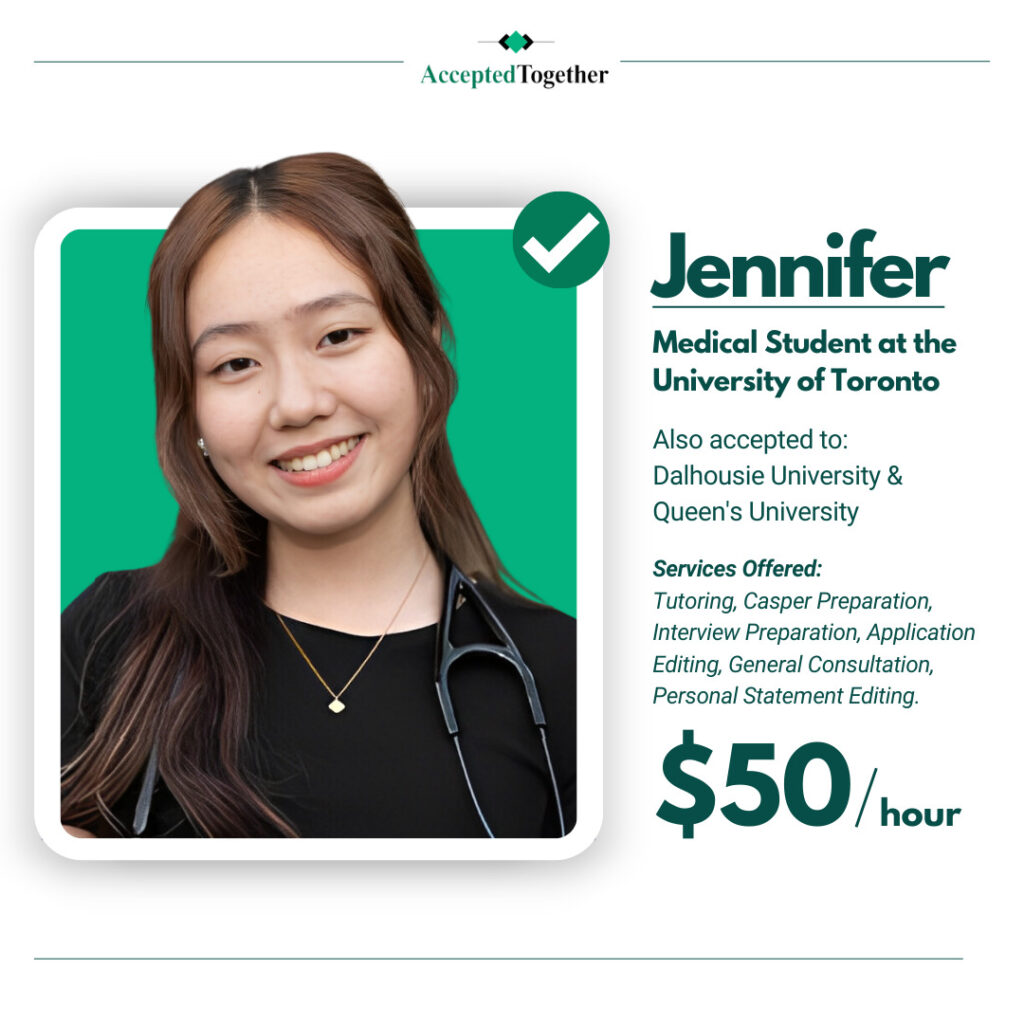

Structuring Your Application Around CanMEDS
To effectively incorporate the CanMEDS Framework into your medical school application, consider the following strategies:
1. Personal Statements/Essays (UofT and other schools)
Your personal statements/medical school essays are a prime opportunity to weave the CanMEDS roles into your narrative. Instead of merely listing achievements, reflect on how your experiences align with each role.
Tips:
- Storytelling: Use anecdotes that illustrate your competencies. For example, recount a specific moment when you demonstrated leadership or advocacy.
- Reflection: Discuss what you learned from each experience and how it has prepared you for a career in medicine.
- Integration: Seamlessly integrate multiple CanMEDS roles within a single story to show your multifaceted abilities.
Example: “While volunteering at the free clinic, I not only honed my communication skills by interacting with diverse patients but also took on a leadership role in organizing health fairs, advocating for underserved communities.”
2. Experience Descriptions
When detailing your extracurricular activities, research, and volunteer work, in the famous OMSAS autobiographical sketch (OMSAS ABS) or other application components, explicitly connect them to the relevant CanMEDS roles.
Tips:
- Be Specific: Clearly articulate how each experience relates to a particular role.
- Quantify Achievements: Use numbers or specific outcomes to demonstrate impact.
- Diversity of Experiences: Showcase a range of activities that cover multiple CanMEDS roles.
Example: “Led a team of 10 volunteers in a community health initiative (Leader) that provided free screenings and health education to over 200 residents (Health Advocate). This experience enhanced my ability to collaborate with diverse groups (Collaborator) and communicate effectively with community members (Communicator).”
(Note how we directly mentioned them here but definitely don’t do that in the actual ABS since that will be very very awkward and too “obvious”)
3. Letters of Recommendation
Ensure that your recommenders are aware of the CanMEDS Framework and can highlight your strengths in these areas.
Tips:
- Inform Your Recommenders: Share the CanMEDS roles with your recommenders and suggest specific examples they might include.
- Diverse Perspectives: Choose recommenders who can speak to different aspects of your competencies, such as academic prowess, leadership, and professionalism.
Example: A professor who supervised your research can emphasize your scholarly abilities and commitment to lifelong learning, while a volunteer coordinator can speak to your advocacy and communication skills.
4. Interviews
Medical school interviews often assess your alignment with the CanMEDS roles, whether explicitly or implicitly.
Tips:
- Prepare Examples: Have clear examples ready that demonstrate each of the CanMEDS roles.
- Behavioral Questions: Anticipate questions that ask you to describe past experiences, focusing on how they relate to the framework.
- Reflect on Growth: Discuss how you’ve developed these competencies over time and how you plan to continue doing so in medical school.
Example: When asked about a challenging team project, you can discuss how you took on a leadership role, facilitated effective communication among team members, and collaborated to achieve the project’s goals, aligning with the Leader and Collaborator roles.
Practical Examples: Applying CanMEDS to Your Application
To further illustrate how to integrate the CanMEDS Framework into your medical school application, here are practical examples for each role:
Medical Expert
Experience: Clinical Shadowing.
Application Integration: “Shadowing Dr. Smith in the cardiology department provided me with firsthand experience in patient diagnosis and treatment planning, reinforcing my passion for evidence-based medical practice.”
Communicator
Experience: Volunteer Counselor.
Application Integration: “As a volunteer counselor at the youth center, I developed strong listening skills and the ability to convey complex information in an empathetic and understandable manner.”
Collaborator
Experience: Research Team Member.
Application Integration: “Working on a research project with peers from diverse backgrounds taught me the importance of teamwork and leveraging each member’s strengths to achieve our common objectives.”
Leader
Experience: Club President.
Application Integration: “Leading the Pre-Medical Society, I organized events that connected students with healthcare professionals, fostering a supportive network for aspiring medical students.”
Health Advocate
Experience: Public Health Campaign Volunteer.
Application Integration: “Participating in a public health campaign to promote vaccination awareness allowed me to advocate for community health and address misinformation through targeted educational initiatives.”
Scholar
Experience: Undergraduate Researcher.
Application Integration: “Conducting independent research on antimicrobial resistance not only deepened my scientific knowledge but also highlighted the importance of continuous learning and contribution to medical scholarship.”
Professional
Experience: Clinical Internship.
Application Integration: “During my clinical internship, I adhered to the highest ethical standards, demonstrating reliability, accountability, and a commitment to patient confidentiality and care.”
Tips for Effectively Utilizing CanMEDS in Your Application
- Self-Assessment: Begin by evaluating your experiences through the lens of the CanMEDS roles. Identify which roles you naturally align with and areas where you can seek growth.
- Diverse Experiences: Strive for a balanced representation of all seven roles in your application to showcase your versatility and comprehensive skill set.
- Authenticity: Be genuine in your reflections. Admissions committees value sincere and thoughtful insights over exaggerated claims.
- Continuous Development: Highlight your commitment to developing these competencies throughout your medical education and future career.
- Seek Feedback: Share your application materials with mentors or advisors familiar with the CanMEDS Framework to ensure effective integration.
Conclusion: The CanMEDS Framework as Your Application Compass
The Canadian CanMEDS Framework serves as a valuable guide for medical school applicants to present themselves as well-rounded, competent, and compassionate future physicians. By thoughtfully aligning your experiences with the seven CanMEDS roles—Medical Expert, Communicator, Collaborator, Leader, Health Advocate, Scholar, and Professional—you can create a compelling narrative that resonates with admissions committees.
Remember, the goal is not just to check boxes but to demonstrate how each role is embodied in your journey towards medicine. Utilize this framework to reflect on your strengths, identify areas for growth, and articulate your readiness to meet the diverse challenges of the medical profession. By doing so, you position yourself as a candidate in OMSAS and other applications who not only excels academically but also possesses the essential interpersonal and professional skills that define a successful physician.




